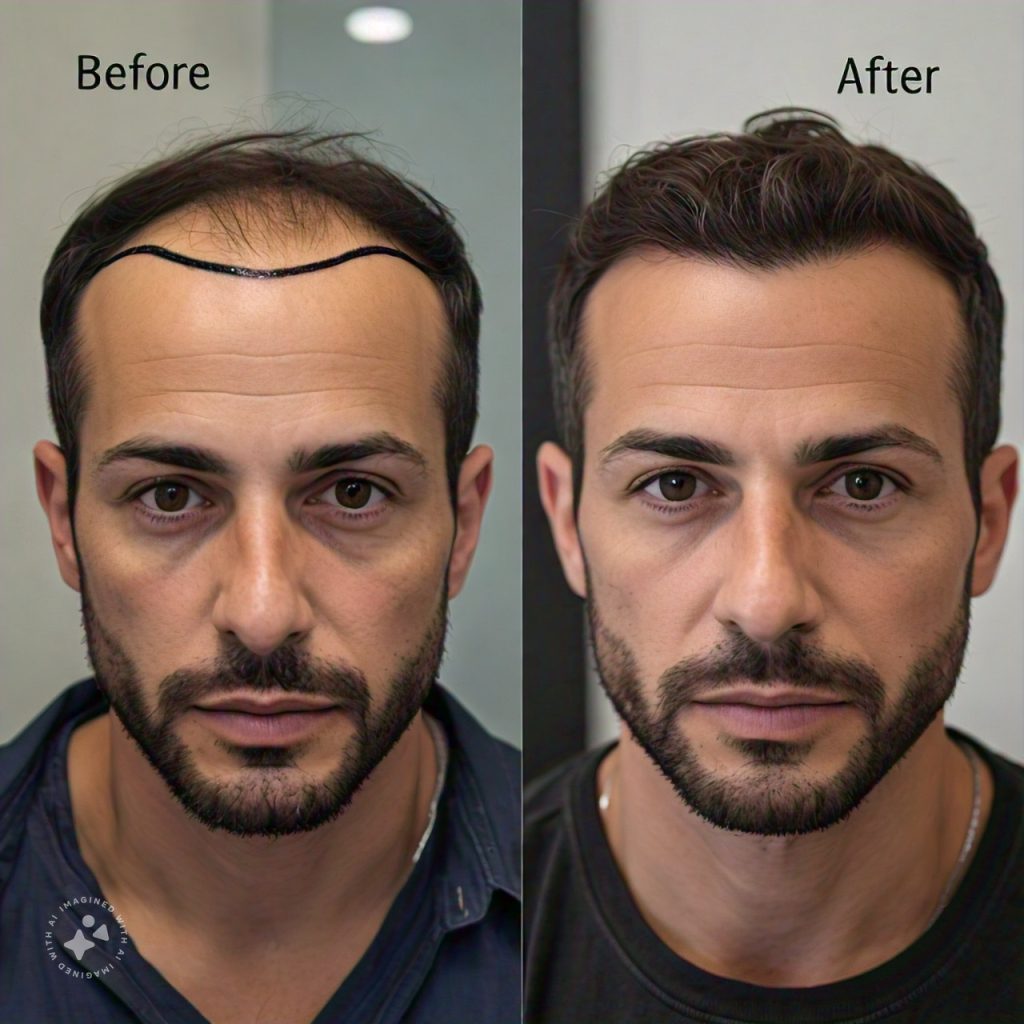Hair loss is a common concern affecting millions of people worldwide, often leading to a search for effective remedies. Among the many solutions available, hair transplantation stands out as a proven, lasting treatment for restoring a full head of hair. But what exactly makes a Hair Transplant successful? This article delves into the science behind the procedure, uncovering the factors that contribute to its high success rates.

Understanding Hair Transplantation
Hair transplantation involves relocating hair follicles from one part of the body, typically the back or sides of the scalp (known as the donor area), to areas experiencing hair thinning or baldness (the recipient area). The procedure capitalizes on the fact that hair follicles in the donor area are genetically resistant to hair loss, ensuring their survival even when transplanted.
Key Techniques in Hair Transplantation
- Follicular Unit Transplantation (FUT):
Also known as the strip method, FUT involves removing a strip of skin containing hair follicles from the donor area. The follicles are then carefully dissected and implanted into the recipient site. This method is highly effective for covering large bald areas but may leave a linear scar. - Follicular Unit Extraction (FUE):
FUE is a more modern approach where individual hair follicles are extracted directly from the donor area using specialized tools. These follicles are then transplanted one by one into the recipient site. FUE leaves minimal scarring, making it a popular choice for patients seeking a natural appearance.
The Role of Hair Follicle Biology
Hair follicles are mini-organs that follow a cyclical growth pattern comprising three stages:
- Anagen (Growth Phase): Active hair growth occurs during this stage, lasting 2–6 years.
- Catagen (Transition Phase): A brief period where hair stops growing and prepares for shedding.
- Telogen (Resting Phase): Hair falls out, and the follicle rests before restarting the cycle.
For a hair transplant to succeed, transplanted follicles must integrate seamlessly into the recipient area and resume their natural growth cycle.
Factors Influencing Hair Transplant Success
- Skill of the Surgeon
The expertise of the surgeon performing the procedure is crucial. Precision in extracting, handling, and implanting hair follicles minimizes damage and ensures high survival rates. - Donor Hair Quality
The availability of healthy, thick donor hair significantly impacts the outcome. Insufficient or weak donor hair can limit the success of the procedure. - Post-Transplant Care
Proper aftercare, including avoiding direct sun exposure, refraining from strenuous activities, and following medical advice, is essential for optimal healing and growth. - Patient Health and Lifestyle
Factors such as age, overall health, and lifestyle habits like smoking can affect the success of the transplant. Healthy individuals generally experience better results.
Advances in Hair Transplant Technology
Innovative technologies are continuously improving hair transplant outcomes:
- Robotic-Assisted Surgery: Devices like the ARTAS system enhance precision in follicle extraction and placement.
- Platelet-Rich Plasma (PRP): PRP therapy, often combined with hair transplants, accelerates healing and stimulates hair growth by boosting follicle regeneration.
- Bioengineered Scalp Treatments: Researchers are exploring ways to artificially grow hair follicles, potentially transforming the future of hair restoration.
The Psychology of Hair Transplant Success
Hair loss can take a toll on one’s confidence and self-esteem. A successful hair transplant not only restores hair but also improves mental well-being. Patients often report increased self-assurance and a better quality of life post-transplant.
Conclusion
The science behind hair transplant success is a blend of advanced medical techniques, biological understanding, and skilled craftsmanship. While the procedure has revolutionized hair restoration, its success depends on a combination of patient-specific factors and the expertise of the medical team. With continued advancements in technology and research, hair transplantation is set to become even more effective, offering hope to those seeking a permanent solution to hair loss.
We are located in Brighton and Hove, proudly serves the nearby areas. Capital Hair Restoration – Hair Transplant is a leading provider of surgical and non-surgical hair loss solutions for men and women throughout Brighton, the UK, and Ireland. Browse our site ( Brighton Hair Transplant ) or call us ( 020 8088 2393 ) for a chat.

